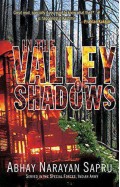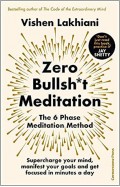- Home
- Categories
- Non Fiction
- History
- Prisoners of History: What Monuments to the Second World War Tell Us About Our History and Ourselves
Prisoners of History: What Monuments to the Second World War Tell Us About Our History and Ourselves
By: Keith Lowe
-
Rs 1,865.75
- Rs 2,195.00
- 15%
You save Rs 329.25.
Due to constant currency fluctuation, prices are subject to change with or without notice.
A Spectator Book of the Year 2020
A Times and Sunday Times Best Book of 2020
A Mail on Sunday Book of the Year 2020
‘Inspired … Lowe’s sensitive, disturbing book should be compulsory reading for both statue builders and statue topplers’ MAX HASTINGS, SUNDAY TIMES
What happens when our values change, but what we have set in stone does not?
Humankind has always had the urge to memorialise, to make physical testaments to the past. There’s just one problem: when we carve a statue or put up a monument, it can wind up holding us hostage to bad history.
In this extraordinary history book, Keith Lowe uses monuments from around the world to show how different countries have attempted to sculpt their history in the wake of the Second World War, and what these memorials reveal about their politics and national identity today.
Amongst many questions, the book asks: What does Germany signal to today’s far right by choosing not to disclose the exact resting place of Hitler? How can a bronze statue of a young girl in Seoul cause mass controversy? What is Russia trying to prove and hide, still building victory monuments at a prolific rate for a war now seventy years over?
As many around the world are questioning who and what we memorialise, Prisoners of History challenges our idea of national memory, history, and the enormous power of symbols in society today.
A Spectator Book of the Year 2020
A Times and Sunday Times Best Book of 2020
A Mail on Sunday Book of the Year 2020
‘Inspired … Lowe’s sensitive, disturbing book should be compulsory reading for both statue builders and statue topplers’ MAX HASTINGS, SUNDAY TIMES
What happens when our values change, but what we have set in stone does not?
Humankind has always had the urge to memorialise, to make physical testaments to the past. There’s just one problem: when we carve a statue or put up a monument, it can wind up holding us hostage to bad history.
In this extraordinary history book, Keith Lowe uses monuments from around the world to show how different countries have attempted to sculpt their history in the wake of the Second World War, and what these memorials reveal about their politics and national identity today.
Amongst many questions, the book asks: What does Germany signal to today’s far right by choosing not to disclose the exact resting place of Hitler? How can a bronze statue of a young girl in Seoul cause mass controversy? What is Russia trying to prove and hide, still building victory monuments at a prolific rate for a war now seventy years over?
As many around the world are questioning who and what we memorialise, Prisoners of History challenges our idea of national memory, history, and the enormous power of symbols in society today.
The Fear and the Freedom: Why the Second World War Still Matters
By: Keith Lowe
Rs 2,120.75 Rs 2,495.00 Ex Tax :Rs 2,120.75
Prisoners of History: What Monuments to the Second World War Tell Us About Our History and Ourselves
By: Keith Lowe
Rs 1,865.75 Rs 2,195.00 Ex Tax :Rs 1,865.75
Zubin Mehta: A Musical Journey (An Authorized Biography)
By: VOID - Bakhtiar K. Dadabhoy
Rs 892.50 Rs 1,050.00 Ex Tax :Rs 892.50
The Origins of Political Order From Prehuman Times to the French RevolutioN
By: Francis Fukuyama
Rs 4,045.50 Rs 4,495.00 Ex Tax :Rs 4,045.50
Manning Up: How the Rise of Women Has Turned Men into Boys
By: Kay Hymowitz
Rs 845.75 Rs 995.00 Ex Tax :Rs 845.75
The Obama Syndrome: Surrender At Home War Abroad
By: Tariq Ali
Rs 1,100.75 Rs 1,295.00 Ex Tax :Rs 1,100.75
The Quest For Meaning: Developing A Philosophy Of Pluralism
By: Tariq Ramadan
Rs 1,185.75 Rs 1,395.00 Ex Tax :Rs 1,185.75
The Pakistan US Conundrum Jihadists The Military And The People The Struggle For Control
By: Yunas Samad
Rs 1,185.75 Rs 1,395.00 Ex Tax :Rs 1,185.75
An Enemy We Created: The Myth Of The Taliban Al Qaeda Merger In Afghanistan 19702010
By: Alex Strick van Linschoten
Rs 4,197.50 Rs 8,395.00 Ex Tax :Rs 4,197.50
WikiLeaks: Inside Julian Assanges War on Secrecy
By: David Leigh & Luke Harding
Rs 637.50 Rs 850.00 Ex Tax :Rs 637.50
No similar books from this author available at the moment.
The Zero Bullsh*t Meditation: The 6 Phase Meditation Method
By: Vishen Lakhiani
Rs 3,395.75 Rs 3,995.00 Ex Tax :Rs 3,395.75
Zubin Mehta: A Musical Journey (An Authorized Biography)
By: VOID - Bakhtiar K. Dadabhoy
Rs 892.50 Rs 1,050.00 Ex Tax :Rs 892.50
The Fear and the Freedom: Why the Second World War Still Matters
By: Keith Lowe
Rs 2,120.75 Rs 2,495.00 Ex Tax :Rs 2,120.75
Prisoners of History: What Monuments to the Second World War Tell Us About Our History and Ourselves
By: Keith Lowe
Rs 1,865.75 Rs 2,195.00 Ex Tax :Rs 1,865.75












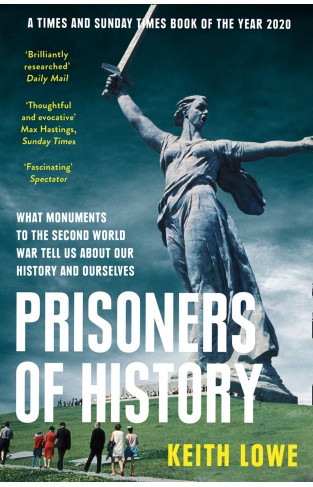

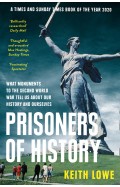
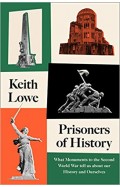
-120x187.jpg?q6)





-120x187.jpg?q6)



-120x187.jpg?q6)




